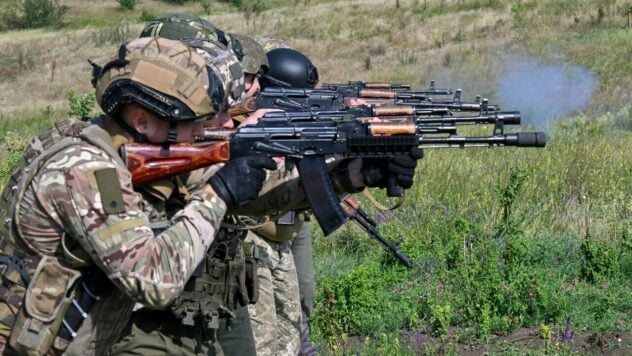Lawyer, graduated from the National University "Odesa Law Academy" with honors. Since 2017, I have been specializing in legal and educational and general legal issues. I am the author of legal articles, scientific publications and articles in the educational environment. Mentor of the "Veritas" legal clinic. The owner of the legal blog "Educational_law_ua" on Instagram.
The introduction of initial military training in educational institutions is a relevant issue in the context of modern challenges to Ukraine's national security. The urgency of this topic is driven by the aggression from the Russian Federation since 2014, as well as the need to instill patriotic values and readiness to defend the sovereignty and territorial integrity of the state.
Legal Framework
At present, Ukraine's legal framework allows for the introduction of initial military training in educational institutions. The main documents regulating this issue include the Constitution of Ukraine, the Law of Ukraine "On Education," the Law of Ukraine "On National Security," the Law of Ukraine "On Military Duty and Military Service," and other subordinate acts.
According to the Constitution of Ukraine, the defense of the Homeland is the duty of every citizen of Ukraine. The Law of Ukraine "On Education" envisages the need to instill in students and pupils a readiness to defend Ukraine, ensure national security, and fulfill the duty to defend the Homeland.
Purpose and Objectives of Initial Military Training
The purpose of introducing initial military training is to prepare youth to fulfill military duty, instill patriotic beliefs in them, readiness to defend the Motherland, and provide them with basic knowledge and skills in military affairs.
The main objectives of initial military training include:
- Formation of patriotism and civic consciousness.
- Familiarization with the basics of military affairs, including tactics, shooting, medical training, engineering, and other necessary disciplines.
- Development of physical and moral-willed qualities necessary for the performance of military duty.
- Providing basic knowledge of Ukrainian military history, international humanitarian law, rights, and obligations of military personnel.
Implementation of Initial Military Training in the Educational Process
For the effective implementation of initial military training in the educational process, it is necessary to develop an appropriate educational and methodological base, including educational programs, textbooks, methodological recommendations for teachers, as well as to ensure adequate material and technical support.
One of the key elements of implementing initial military training is the training of teachers. It is necessary to develop a system for training and upgrading the qualifications of pedagogical staff who will teach military-patriotic subjects.
Close cooperation with military units and institutions is also important to ensure the conduct of practical classes at an appropriate level. Involving military personnel, veterans, as well as representatives of public organizations in conducting classes will contribute to increasing the motivation of students.
International Experience
The experience of other countries shows that initial military training is an effective means of fostering patriotism and preparing youth to defend their country. For example, in countries such as Israel, Switzerland, Singapore, and South Korea, military training is an integral part of the educational process.
In Israel, military training starts in school, where students receive basic knowledge and skills, which are then perfected during military service. In Switzerland, all men are obliged to undergo military training and participate in regular reservist gatherings. This approach ensures a high level of preparedness of the population for the defense of the country.
Challenges and Prospects
The introduction of initial military training in Ukraine faces a number of challenges, including inadequate funding, societal perceptions, and institutional barriers. Despite these challenges, the potential benefits for strengthening national security and fostering patriotic attitudes among youth are significant.
Successful implementation of this initiative requires a comprehensive approach, including legislative support, funding, teacher training, and cooperation with military structures.
Conclusion
The analysis of documents and the legal analysis of the situation indicate that the introduction of initial combined military training in Ukrainian educational institutions is an important step on the way to strengthening national security and forming the patriotic consciousness of young people. This will require considerable effort and resources, but the results can significantly increase the readiness of the population to defend their country. Taking into account the international experience and the specifics of modern challenges, Ukraine has all the prerequisites for the successful implementation of the PZVP, which will become an important element of the national security system. Therefore, if you need written advice from a lawyer's consultation of a lawyer online, contact YM "Consultant", whose specialists know all the peculiarities of the field of law.

































